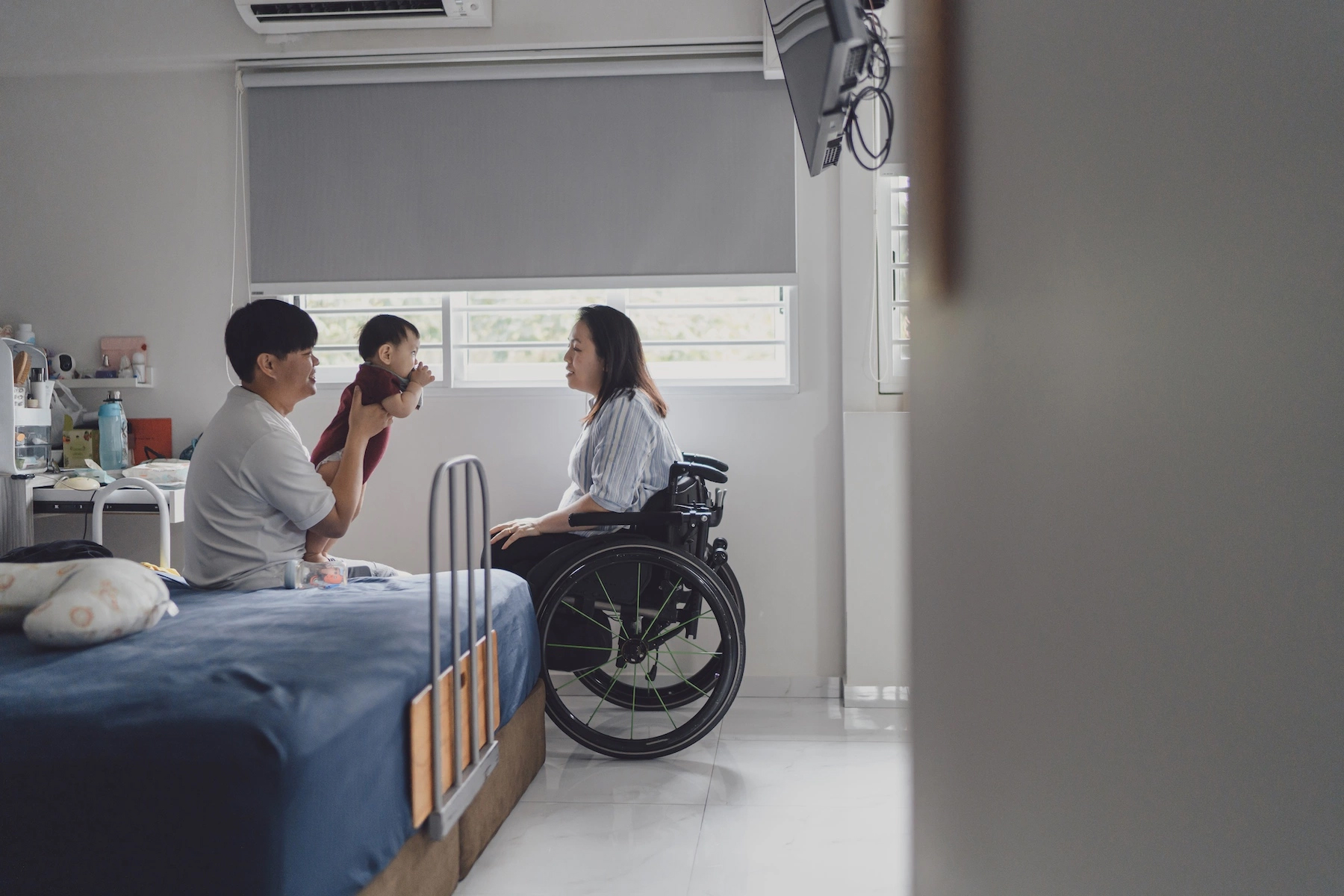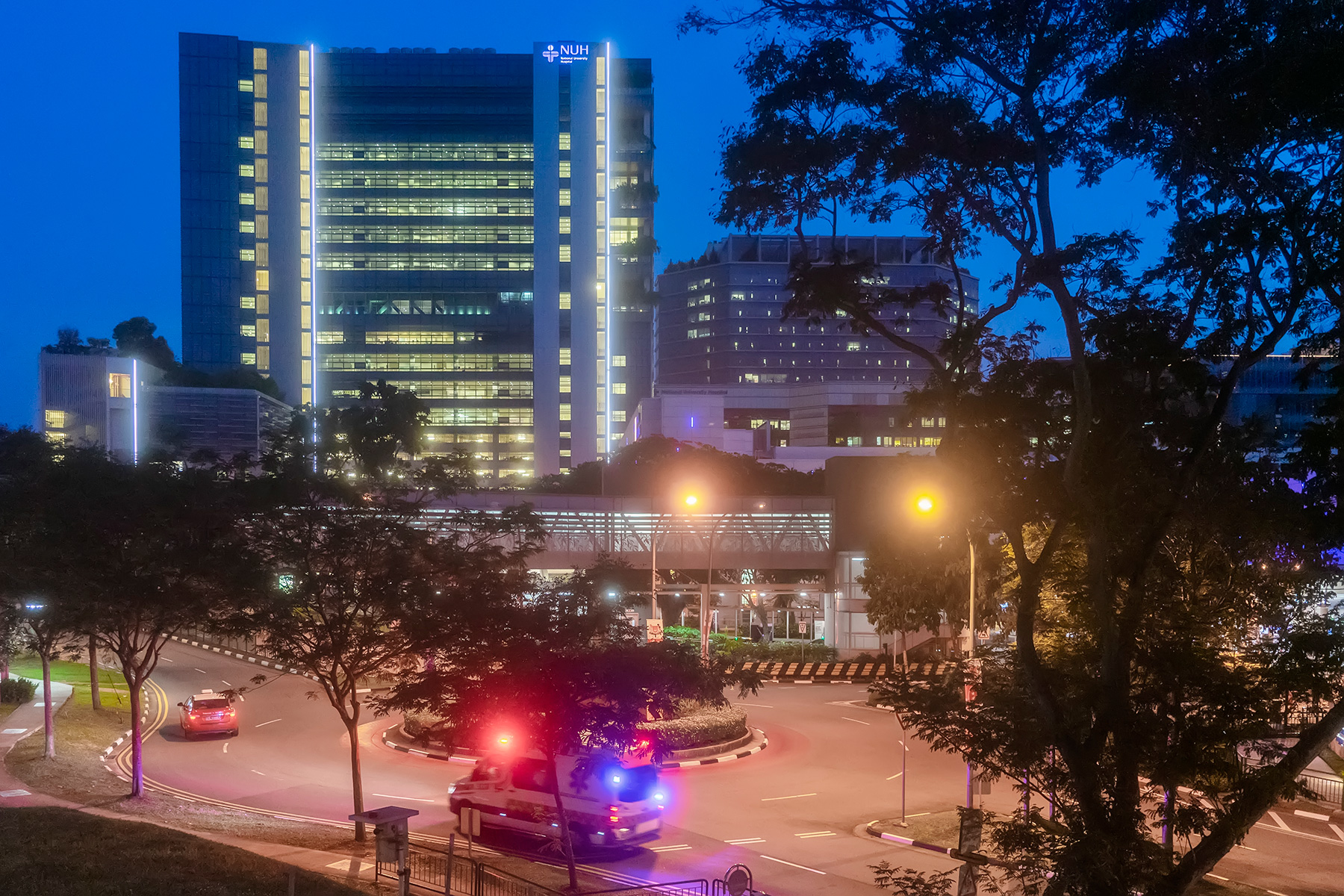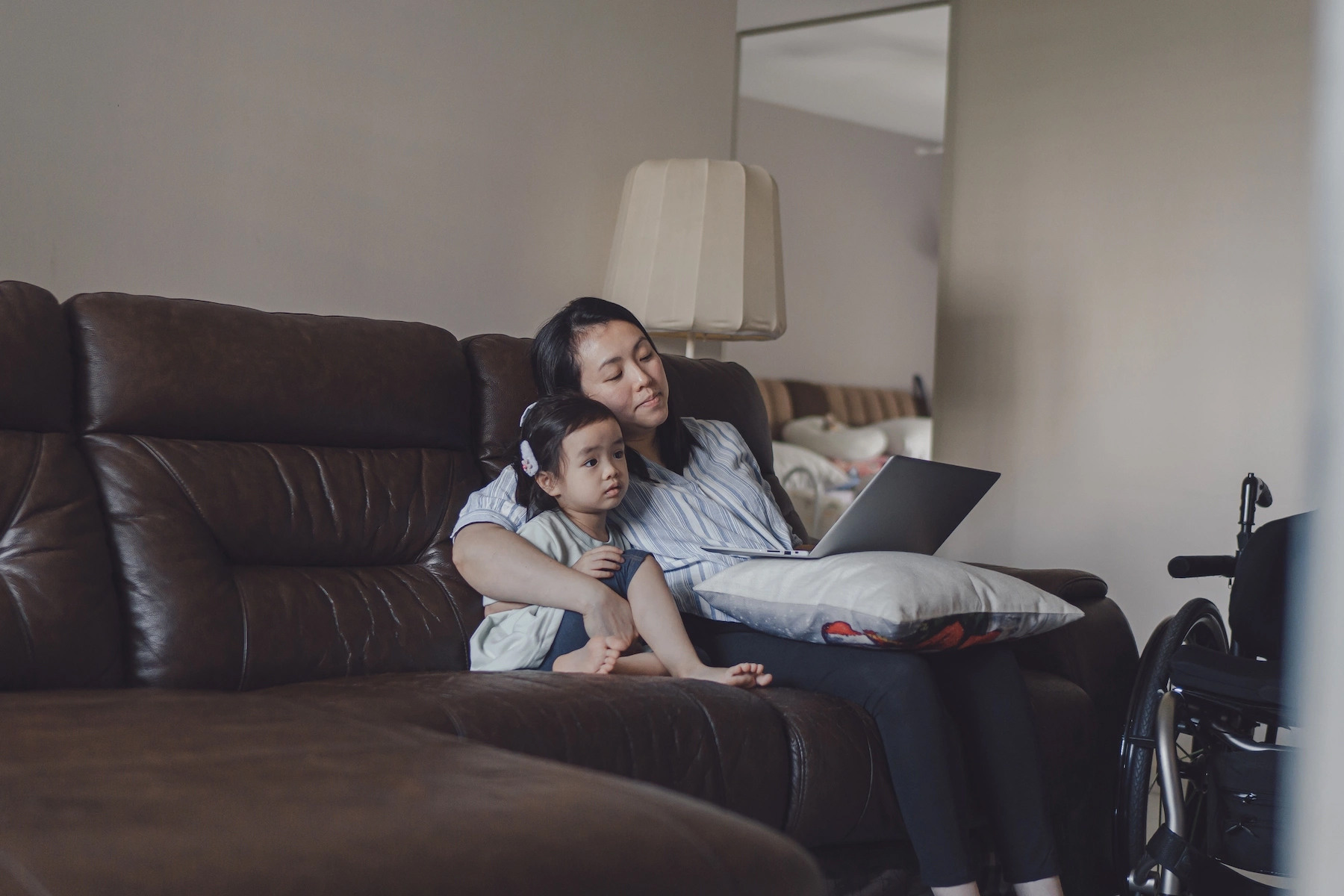Singapore’s healthcare system makes finding a doctor easy, whether you need a quick consultation or a specialist’s expertise. We’ll explain what you need to know about appointments, medical checks, and (most importantly) costs.
Keep reading for the following information:
- Overview of doctors in Singapore
- Who can see a doctor in Singapore?
- How to find a doctor near me in Singapore?
- How to see a doctor in Singapore: step-by-step
- How much do doctor visits cost in Singapore?
- Overview of doctors’ services in Singapore
- How to complain about a doctor in Singapore
- Practical medical words in Malay, Mandarin, and Tamil
- Useful resources
Allianz Care
Allianz Care is a world leader in providing international health insurance. Their various premiums provide professionally designed solutions for a variety of expat lifestyles. So, wherever your life takes you, make sure you have the right health protection for you and your family with Allianz Care.
Overview of doctors in Singapore
Singapore has a world-class healthcare system that covers almost all residents, including expats with permanent residency. Funded through a combination of public and private health insurance, this ensures that everyone can access a broad range of medical services, including doctor visits and emergency care.
According to the Singapore Department of Statistics, the country has relatively many doctors compared to the rest of the region. In 2023, there were 28 doctors per 10,000 residents (ASEAN average: 11.3).
Of these, very few appear to be family doctors. In 2023, Singapore had just under 2,500 private general practitioner clinics, which translates to approximately 4.5 GPs per 10,000 patients. Of course, each clinic may have multiple family doctors, while others work at public health centers. As such, the actual number of primary care physicians per 10,000 inhabitants could be higher.
All doctors in Singapore must be licensed and registered by the Singapore Medical Council (SMC), which is overseen by the Ministry of Health (MOH).
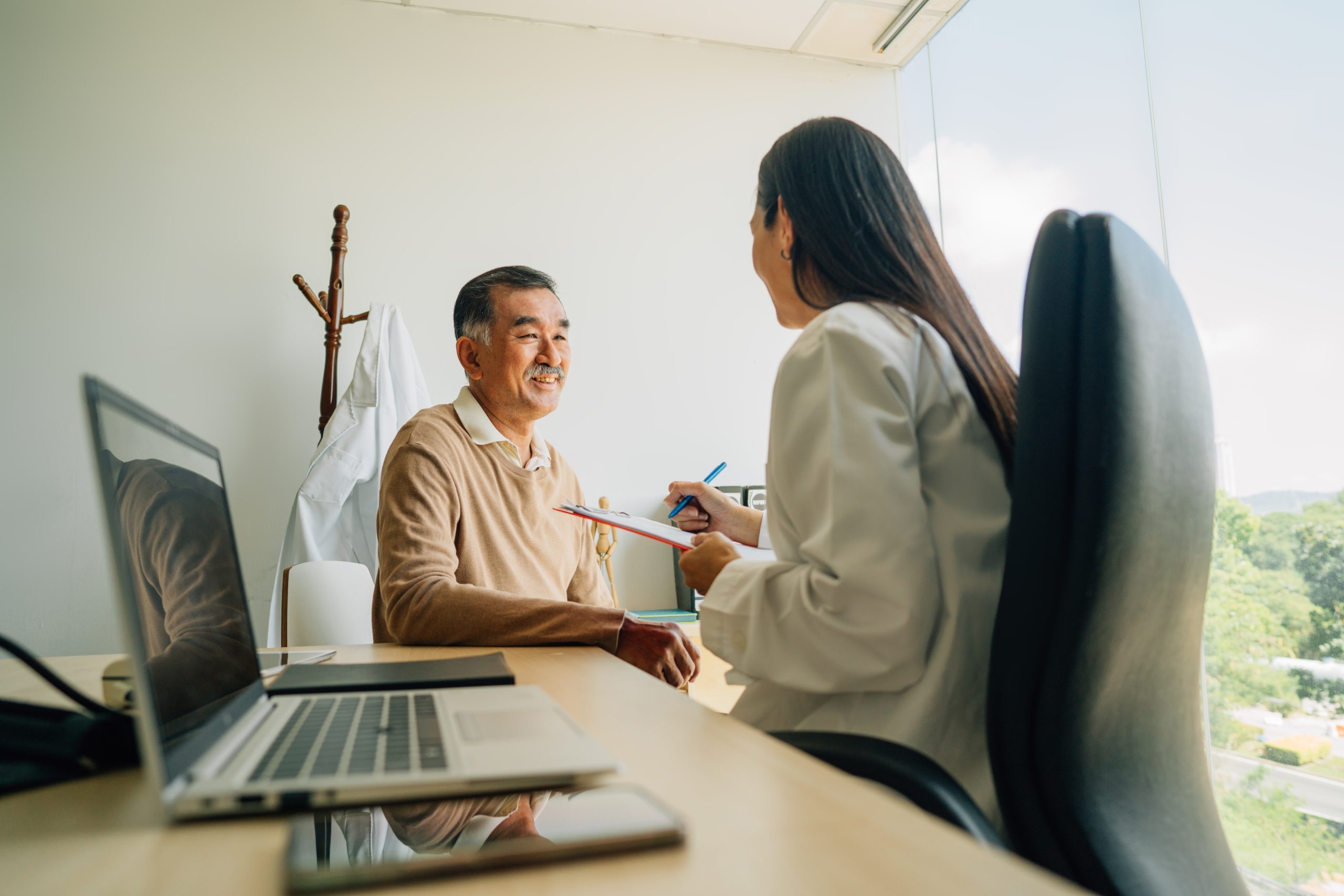
Family doctors and GPs in Singapore
General practitioners (GPs) are typically the first point of contact for most health concerns in Singapore. They work either in public polyclinics or private practices, and you are free to choose whichever doctor you prefer. That said, non-permanent-resident expats don’t have access to the public system and will need to turn to the country’s extensive network of private GP clinics.
Public polyclinics are usually open from 08:00 to 13:00, Monday to Saturday, with no afternoon or Sunday service. Most are also closed on public holidays. Private health centers often offer more availability with regular business hours that are typically from 08:00 to 17:00, Monday to Friday. In residential and high-traffic areas, some also offer extended evening and weekend hours. A few operate 24/7.
GPs handle common health issues, provide general check-ups, manage chronic conditions, and refer you to specialists when necessary. They also maintain medical records and coordinate any ongoing care or follow-up treatments.
Medical specialists in Singapore
If you need more specialized care, the next step is typically to see a medical specialist. Singapore offers a broad range of specialists in both the public and private healthcare sectors, covering areas such as dermatology, cardiology, orthopedics, pediatrics, and more.
Medical specialists usually work in hospitals or private health centers. Public outpatient clinics typically operate from 08:00 to 17:00, Monday to Friday, and 08:00 to 13:00 on Saturdays. Private clinics tend to offer longer and more flexible hours, including evenings and weekends.
Patients need a GP referral to see a specialist in the public sector. Waiting times can vary depending on the service, but appointments may take several days or weeks. With private healthcare, you don’t need a referral to see a medical specialist, though it could help you and them identify your situation more easily. Your insurance may also reimburse more if you do have one.
Who can see a doctor in Singapore?
Everyone can access medical care to some degree or another, including asylum seekers, refugees, and tourists. However, for non-urgent medical help, you have to pay large out-of-pocket costs or have health insurance coverage – either public, private, or both.

Our article on health insurance in Singapore covers the topic (and costs!) in more detail, but basically, there are both public and private doctors. While they both offer great standards of care, the difference is in the accessibility and insurance coverage.
For example, public doctors are accessible to Singaporean nationals and foreign permanent residents (PR). Non-PR expats can’t use the public system and must rely on private doctors instead. While these can be expensive, they also have shorter waiting times and offer longer, personalized visits.
How to find a doctor near me in Singapore?
If you are in a life-threatening situation, call 995, which is Singapore’s main emergency number. You can also go to the nearest hospital emergency department (colloquially known as A&E) or one of the 24-hour clinics across the island. The latter is a bit cheaper to attend, so if you’re not in urgent need, you may prefer to go to a clinic.
If your situation is less immediate (and more you looking for information), you can find doctors and GPs listed on the MOH website. For private doctors, you can check websites like Doctor Anywhere and SingHealth. And if you’re looking for a Ummah doctor, you can browse the website of the Muslim Healthcare Professionals Association.
For medical issues outside regular opening hours, you can contact one of the 24-hour clinics in Singapore. You can also use a private service like Speedoc, which offers home visits as well.
How to see a doctor in Singapore: step-by-step
Step 1: Register with your preferred doctor
Residents in Singapore are free to choose any doctor they want. You can switch physicians freely, and it’s not necessary to register beforehand. However, most people choose to stick with one GP for practicality and familiarity.
Step 2: Book a doctor’s appointment
Walk-ins are common in Singapore, especially for private GP clinics. Of course, it depends on the clinic and time of day. Public GPs strongly encourage patients to book an appointment in advance – you can do so with a quick phone call to the medical center or using an online service like HealthHub or the government’s Health Appointment System.
Specialists don’t do walk-ins unless it’s for urgent medical situations.
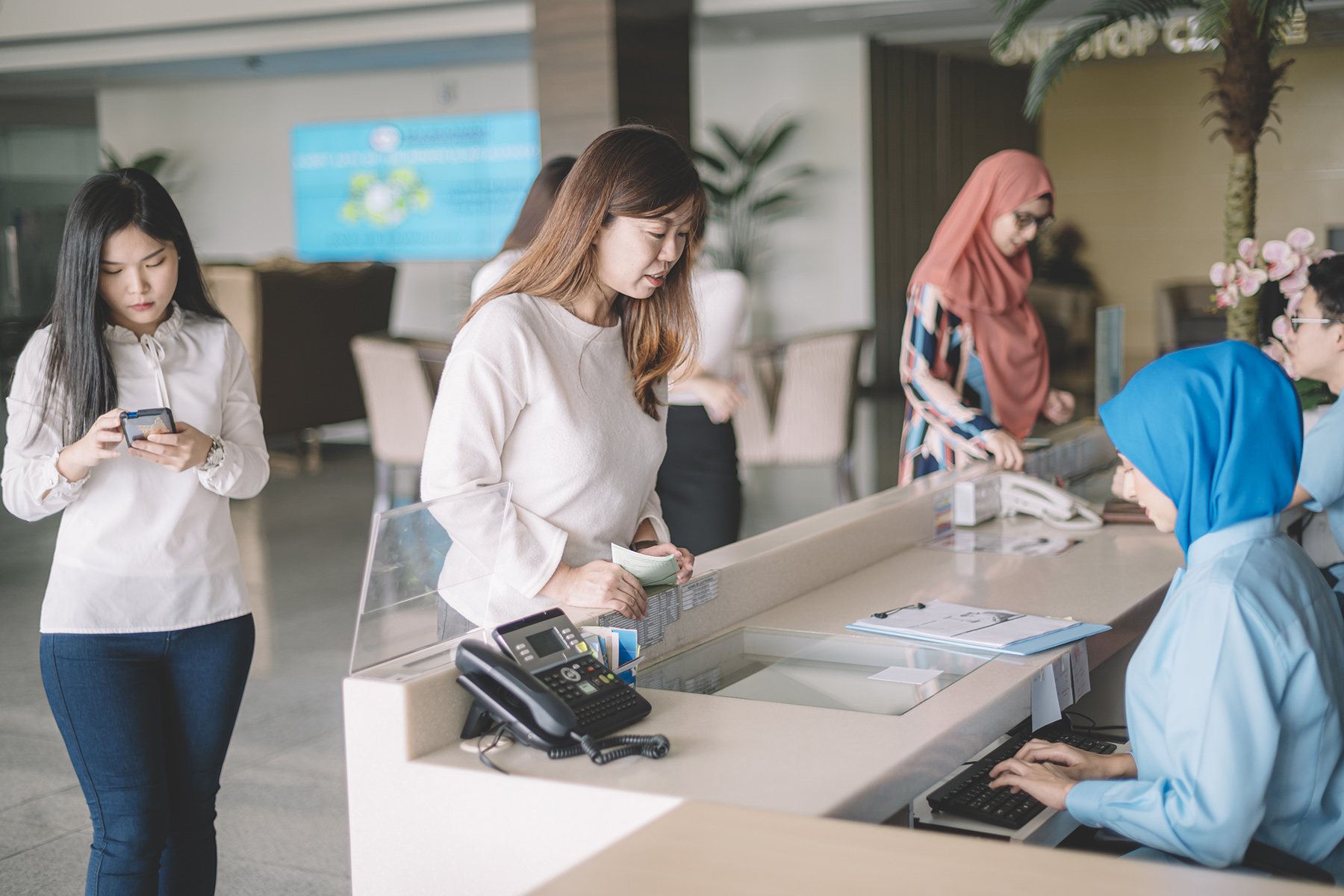
You can typically expect to wait a few days to a week to see a GP at a public polyclinic, and several weeks to months for a specialist appointment after a referral. Singapore’s private doctor sector has significantly shorter waiting times, often with same-day or next-day slots for both GPs and specialists. Naturally, this also comes with higher out-of-pocket costs.
Step 3: Visit the health station
When you go to the scheduled appointment, make sure to bring your ID and wallet. If you’re using a private service, you should also bring your health insurance card.
It’s worth noting that some clinics and hospitals no longer accept cash, and cheques are being phased out nationwide. You can still pay over the counter with a card, but there are also several convenient high-tech options to save you time, including Mobile Pay, NETS, and Singpass.
Waiting times will vary based on how busy the clinic is, but you can always ask the front desk how long you are likely to be waiting. Some private health services like Healthway Medical and Minmed Connect also provide telehealth services and at-home doctor visits, but keep in mind that this may or may not be covered by insurance.
How much do doctor visits cost in Singapore?
Singapore’s public sector charges citizens less than permanent residents. Citizens can expect to pay S$17.50 for GP consultations and S$30.50–71+ for those with medical specialists (2024). Of course, this also depends on the services provided; you may also face additional fees for lab work, imaging, and prescriptions.
Permanent residents, on the other hand, typically pay S$38.80 for GP visits and S$34.50–85 for first consultations with medical specialists. Again, there may be extra costs for additional services.
Non-PR expats pay around S$75+ to see a public doctor.
Private GP clinics in Singapore charge fees based on consultation length and clinic location. You can generally expect to pay around S$20–30 for short visits (up to 10 minutes) and S$30–55 for longer visits (11–20 minutes). Anything longer costs S$20–25 per 10 minutes extra.
Seeing a private specialist may set you back S$160–205+, depending on the service provided.
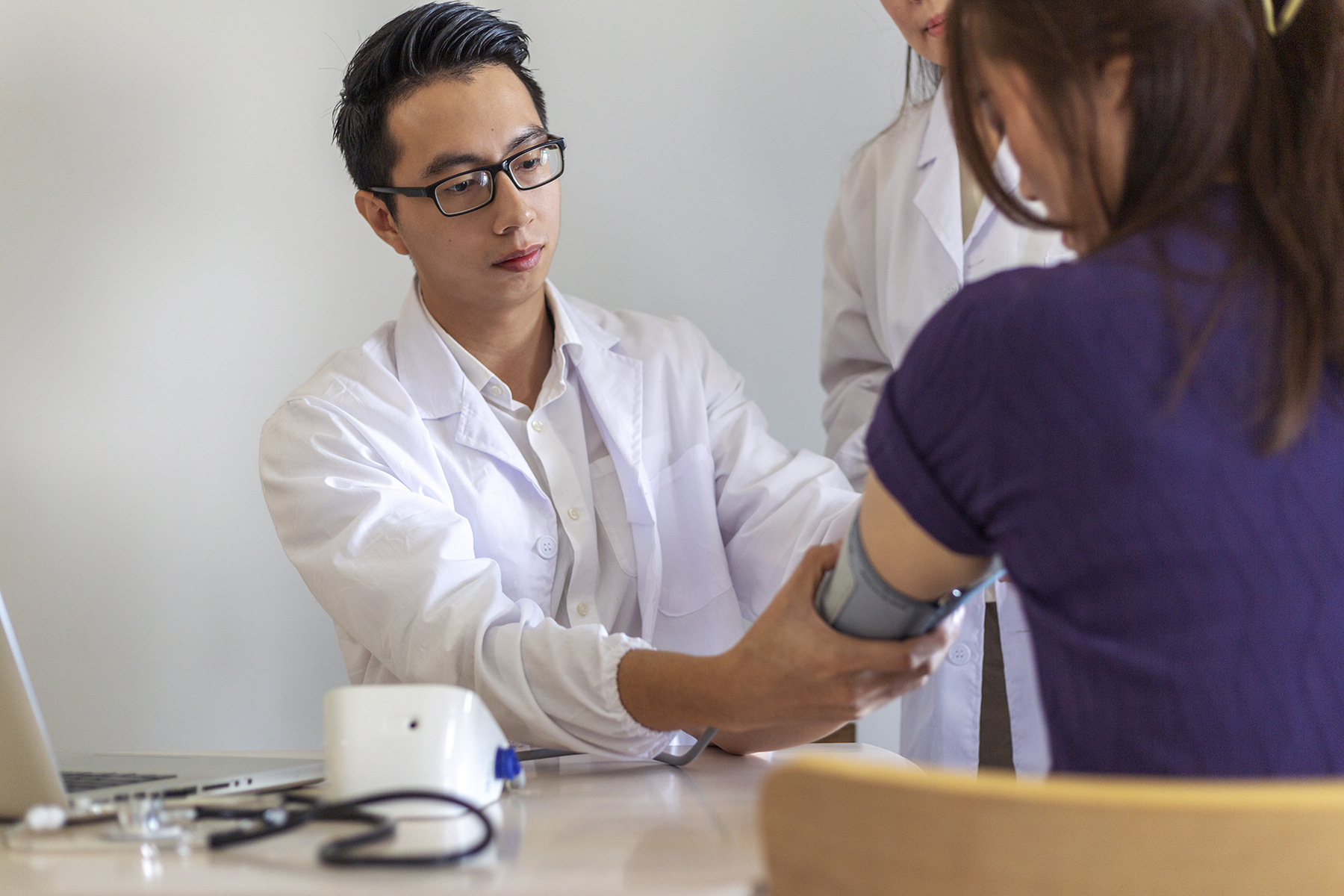
Do I need health insurance in Singapore?
No. Our dedicated article on health insurance explains everything in full detail, but as a quick summary:
- Health coverage is not mandatory in Singapore
- Some employers offer private coverage as an employment benefit, however, this too is not mandatory
- Private health services are available and affordable with private insurance
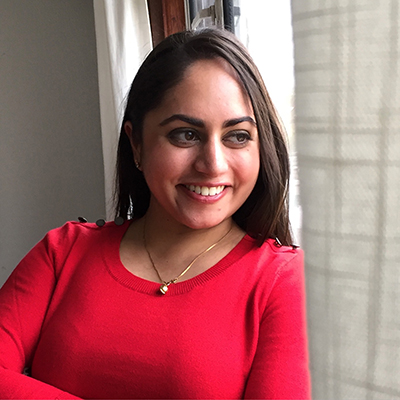
Local expert
Gayatri Bhaumik
Insider tip
Doctors won’t turn away patients without health insurance; however, treatment costs can add up if you’re uninsured, particularly if you need to stay in a hospital. Expats often joke that it’s cheaper to die than fall ill in the Lion City.
There are plenty of private health insurers in Singapore, and it’s worth shopping around to find the best deals. Aside from the home-grown health insurance providers, there are also international insurers who cater specifically to expats. These providers are ideal for residents who travel outside the country a lot and anyone who prefers expat-focused care:
If you are only visiting Singapore, it may also be a good idea to take out travel insurance like Allianz Assistance to cover any unexpected medical costs.
Overview of doctors’ services in Singapore
Prescription medications
If necessary, the doctor may prescribe you medication, which you can pick up from any pharmacy in Singapore. To find one nearest to you, you can use any search engine or check the MOH website. If you need medication outside of regular hours, look for one that’s open 24/7.
You typically need to pay for prescriptions yourself; the Pharmaceutical Society of Singapore maintains a price list of medications.

Expats in Singapore will be interested to learn that private doctors have been criticized for overprescribing medications. The government has debated this issue; however, they have yet to make any policies to stop this from happening.

Local expert
Gayatri Bhaumik
Insider tip: Where to buy your prescriptions
Savvy Singaporeans know that they can pay less if they go to the polyclinic’s on-site dispensary for their medication. These sell prescriptions for much cheaper than regular pharmacies.
Medical tests in Singapore
Of course, polyclinics, private GP clinics, and hospitals in Singapore can perform numerous medical tests. Expats’ private health insurance will often cover one annual check-up; otherwise, health screenings for foreigners can cost several hundred dollars.
Singaporean citizens can benefit from the Screen for Life program. This government-backed screening program offers hefty subsidies to encourage people to get tested for a number of diseases. Use their online tool to see what health checks you should be doing.
How to complain about a doctor in Singapore
If you want to file an official complaint about a doctor or GP in Singapore, you must first raise it with the health clinic directly. After that, you can escalate the matter to the Singapore Medical Council. Your formal complaint should be written in English and contain a Statutory Declaration. You may also want to add some supporting documents that help illustrate your case.
Your case will then be investigated. It can take up to six months for the SMC to investigate and resolve the matter. If that period of time is not long enough, the High Court may also permit an extension.
Practical medical words in Malay, Mandarin, and Tamil
English is one of the official languages in Singapore, so you won’t have any issues explaining your health concern. But it’s fun to learn, so here are some medical phrases to remember in Malay, Mandarin, and Tamil:
| English | Mandarin Chinese (simplified) | Pronunciation | Malay |
| general practitioner | 全科医生 | quán kē yī shēng | pengamal am |
| doctor’s office | 诊所 | zhěn suǒ | klinik doktor |
| appointment | 预约 | yù yuē | temujanji |
| pain | 疼 | téng | sakit |
| headache | 头痛 | tóu tòng | sakit kepala |
| stomach ache | 肚子痛 | dù zi tòng | sakit perut |
| back pain | 背痛 | bèi tòng | sakit belakang |
| fever | 发烧 | fā shāo | demam |
| cough | 咳嗽 | ké sòu | batuk |
| prescription | 处方 | chǔ fāng | preskripsi |
| painkiller | 止痛药 | zhǐ tòng yào | ubat penahan sakit |
| Tamil | Pronunciation | ||
| general practitioner | பொதுமருத்துவர் | pothu maruththuvār | |
| doctor’s office | மருத்துவர் அலுவலகம் | maruththuvār aluvakham | |
| appointment | நேர்முகம் | nērmugam | |
| pain | வலி | vali | |
| headache | தலைவலி | thalai vali | |
| stomach ache | வயிற்றுவலி | vayitru vali | |
| back pain | முதுகுவலி | muthugu vali | |
| fever | காய்ச்சல் | kāyccal | |
| cough | இருமல் | irumal | |
| prescription | மருந்து சீட்டு | marunthu seettu | |
| painkiller | வலிநிவாரணி | vali nivārani |
Useful resources
- Ministry of Health (MOH) – official website of the ministry that oversees Singapore’s healthcare system
- HealthHub – official government e-platform where citizens can access health records, make appointments and payments, refill prescriptions


